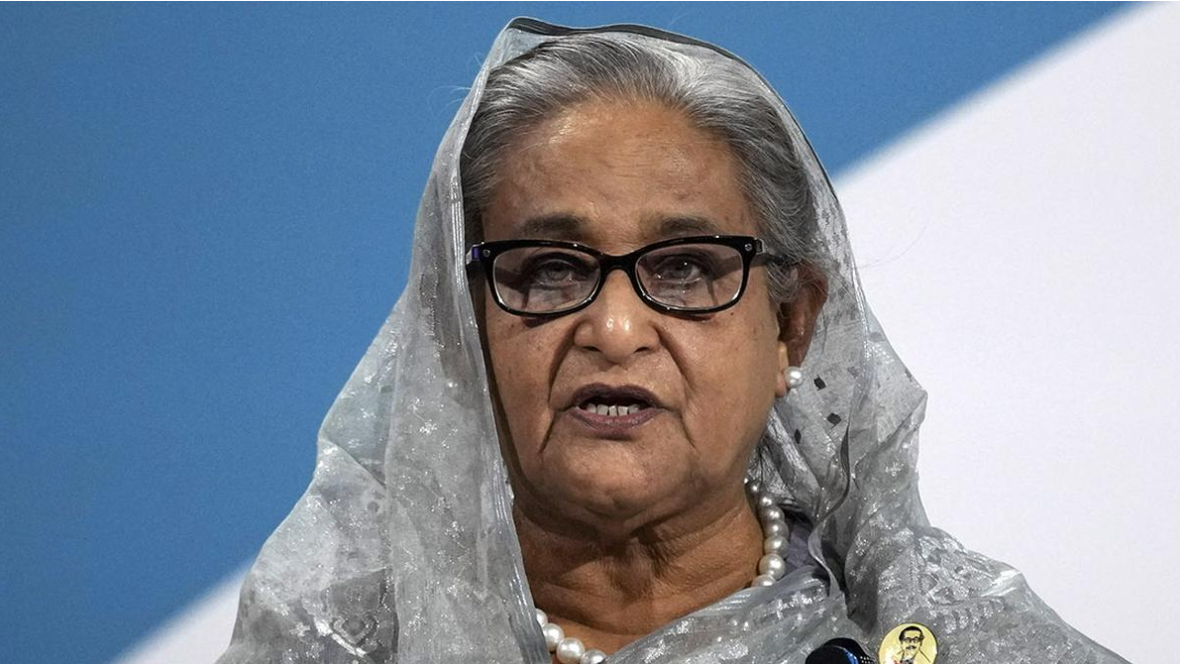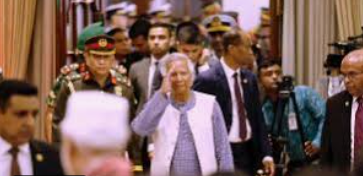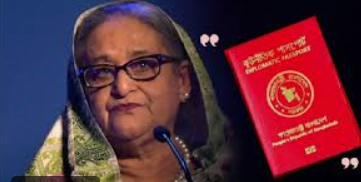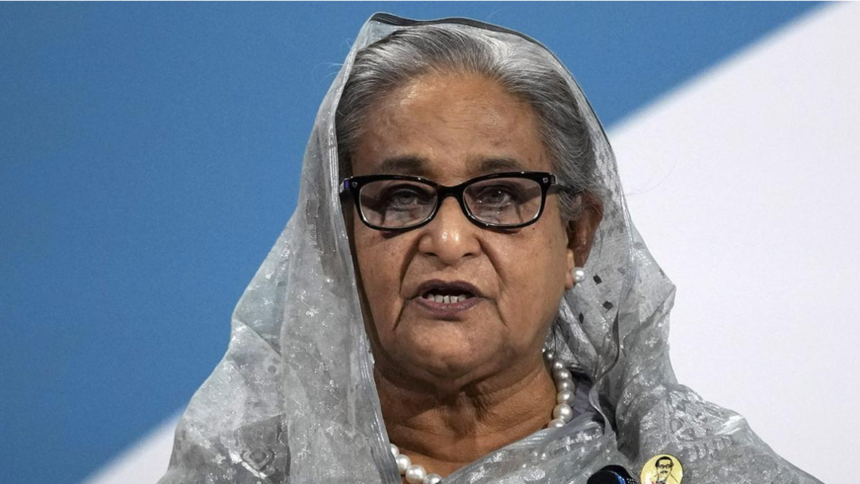Bangladesh Interim Government to Revoke Diplomatic Passports Issued to MPs During Hasina Era:-
Bangladesh Interim Government in a significant political development, the interim government of Bangladesh has announced its intention to revoke diplomatic passports previously issued to Members of Parliament (MPs) during the tenure of Prime Minister Sheikh Hasina. This move is set to impact numerous legislators who were granted these passports in the past, Bangladesh Interim Government sparking a debate over its implications for the country’s political and diplomatic landscape. The decision marks a notable shift in the administration’s approach to political privileges and could have far-reaching consequences for the future of Bangladeshi diplomacy and governance.
Background: The Diplomatic Passport Controversy
Diplomatic passports are issued to high-ranking officials, including MPs, to facilitate their travel for official government functions and international engagements. These passports are meant to provide certain privileges and immunities under international law, Bangladesh Interim Government which aid in the execution of official duties abroad.
Under Prime Minister Sheikh Hasina’s administration, a significant number of MPs received diplomatic passports. The issuance of these passports was justified by the government as a means to enable MPs to represent Bangladesh effectively on the global stage. However, the practice became controversial, Bangladesh Interim Government with critics arguing that the issuance of diplomatic passports was politically motivated and used as a tool for consolidating power and rewarding loyalists.
The Interim Government’s Decision
The interim government, which assumed power in a transitional phase leading up to new elections, has decided to revoke the diplomatic passports issued during the Hasina era. This decision is being seen as part of a broader effort to address perceived abuses of power and to implement reforms aimed at restoring transparency and accountability in government operations.
The interim administration has cited several reasons for this move:
- Political Neutrality: The interim government aims to eliminate any vestiges of political favoritism associated with the previous administration. Revoking the diplomatic passports is seen as a step towards neutralizing political advantages that may have been conferred upon MPs by the former government.
- Addressing Allegations of Misuse: There have been allegations that the diplomatic passports were misused for personal and political gain rather than for official state purposes. The interim government’s decision reflects a commitment to addressing these allegations and ensuring that such privileges are not exploited.
- Reforming Diplomatic Practices: The interim government seeks to reform and streamline diplomatic practices in Bangladesh. By revoking the diplomatic passports, the administration intends to review and revise the criteria for issuing such documents, ensuring they are granted based on merit and necessity rather than political connections.
 for more information click on this link
for more information click on this link
Implications of the Revocation
The revocation of diplomatic passports issued to MPs during the Hasina era has several implications for Bangladesh’s political and diplomatic landscape:
1. Impact on MPs and Their Functions
The affected MPs will lose the privileges associated with diplomatic passports, including expedited visa processes and diplomatic immunity. This loss could affect their ability to participate in international conferences, Bangladesh Interim Government negotiations, and other official duties abroad. It may also impact their diplomatic engagements and representational roles, potentially limiting their effectiveness in international forums.
2. Repercussions for Diplomatic Relations
The revocation of diplomatic passports could influence Bangladesh’s diplomatic relations with other countries. Diplomats and foreign officials might view this move as a signal of internal political changes and instability. However, the interim government may also use this opportunity to reestablish and strengthen diplomatic ties based on transparency and merit.
3. Legal and Procedural Challenges
The revocation process may face legal and procedural challenges. MPs affected by the decision might contest the revocation in court, arguing that it undermines their rights and privileges. The interim government will need to navigate these challenges carefully, Bangladesh Interim Government ensuring that the revocation is carried out in accordance with legal standards and due process.
4. Public Perception and Political Reactions
The decision to revoke diplomatic passports is likely to generate mixed reactions from the public and political stakeholders. Supporters of the interim government may view it as a necessary reform, Bangladesh Interim Government while critics might perceive it as a politically motivated action. The interim government will need to manage public perception and address concerns to maintain credibility and support for its reform agenda.
Historical Context: The Hasina Era and Diplomatic Passports
To fully understand the implications of the interim government’s decision, it is essential to consider the context in which the diplomatic passports were issued during Prime Minister Sheikh Hasina’s administration. Under Hasina’s leadership, Bangladesh Interim Government the issuance of diplomatic passports to MPs was seen as part of a broader strategy to enhance Bangladesh’s international presence and influence.
During this period, the diplomatic passports were used to facilitate MPs’ participation in various international forums, bilateral meetings, and diplomatic missions. While this was intended to bolster Bangladesh’s global profile, Bangladesh Interim Government it also led to accusations of misuse and politicization of the diplomatic passport system.
Critics argued that the issuance of diplomatic passports was often used as a tool for political favoritism, with loyalists and allies receiving these privileges regardless of their official roles or responsibilities. This perception of abuse contributed to the call for reforms and the current revocation decision by the interim government.  for more information click on this link
for more information click on this link
The Path Forward: Reforms and Future Prospects
As the interim government moves forward with the revocation of diplomatic passports, there are several steps it may take to address the issues raised and implement reforms:
1. Reviewing Diplomatic Passport Policies
The interim government will likely undertake a comprehensive review of the policies governing the issuance of diplomatic passports. This review will aim to establish clear and objective criteria for awarding diplomatic passports, Bangladesh Interim Government ensuring that they are granted based on genuine need and merit rather than political considerations.
2. Enhancing Transparency and Accountability
To restore public trust and confidence, the interim government will need to demonstrate transparency and accountability in its decision-making processes. This includes providing clear justifications for the revocation of diplomatic passports and addressing any concerns raised by affected MPs and the public.
3. Strengthening Diplomatic Practices
The interim administration may use this opportunity to strengthen diplomatic practices and improve the efficiency of international engagements. By establishing a more rigorous and transparent process for issuing diplomatic passports, Bangladesh Interim Government the government can enhance the effectiveness of Bangladesh’s diplomatic efforts and representation abroad.  for more information click on this link
for more information click on this link
4. Addressing Legal and Political Challenges
The interim government will need to navigate legal and political challenges arising from the revocation decision. This includes addressing potential legal disputes and managing political reactions to ensure that the process is carried out smoothly and in accordance with the law.
Conclusion
The interim government’s decision to revoke diplomatic passports issued to MPs during the Hasina era represents a significant shift in Bangladesh’s political and diplomatic landscape. While this move aims to address concerns of misuse and favoritism, Bangladesh Interim Government it also raises questions about the implications for MPs, diplomatic relations, and public perception.
As the interim administration implements this decision, it will need to carefully manage the associated challenges and work towards establishing a more transparent and accountable system for diplomatic practices. The outcome of this decision will have lasting effects on Bangladesh’s political and diplomatic dynamics, shaping the future of the country’s governance and international relations. ALSO READ:- ‘The Rings of Power’ Interview: Sam Hazeldine on Playing Adar, Learning Black Speech, and the Sauron Problem 2024





